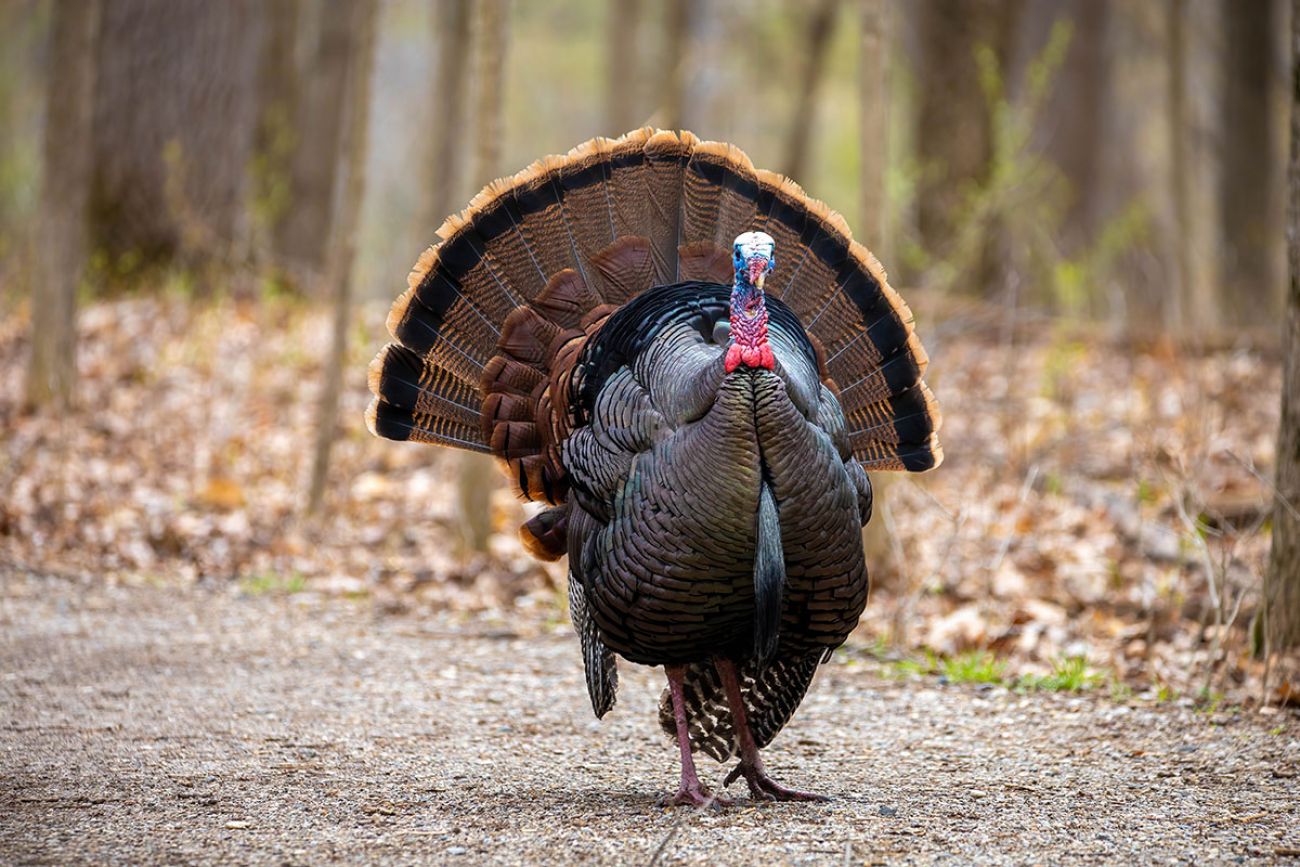Michigan regulators not ready to expand turkey hunting limits

- Michigan wildlife regulators are unlikely to expand the number of wild turkeys hunters can kill annually
- They worry that raising the limit from one to two turkeys a year could take out too many males
- The NRC said it would take up whether to remove three trout streams from the list of designated streams at its next meeting
State wildlife regulators plan to keep Michigan’s turkey hunting limits essentially unchanged, rejecting efforts by outside groups to secure permission to kill more of the wild bird.
During a meeting of the Michigan Natural Resources Commission on Thursday, Adam Bump, a wildlife division bear and furbearer specialist with the Department of Natural Resources, said agency officials want to keep the current turkey quota while they continue to study the bird’s population.
“We’re not recommending a change right now,” Bump said. “But we do think that issue warrants more deliberation and potential action in the future.”
Related:
- In Northern Michigan, bison are teaching a lesson in sustainability
- Michigan skeptical about hunters’ bid to expand turkey hunting season
- Michigan anglers fear fishing deal with tribes could hurt their interests
In a resources commission meeting on August 11, regulators discussed a proposition from the Michigan United Conservation Club, allowing hunters to kill two turkeys yearly instead of one.
While Michigan has plenty of turkeys, officials expressed concern that killing too many dominant male turkeys in the spring could hurt breeding.
Bump said then that restructuring the turkey hunting season would have to become a conversation to make those changes.
The DNR will get more information about Michigan’s turkey population by relying on a model from MSU researchers, Bump said Thursday.
DNR officials plan to discuss possible future turkey season changes with interest groups like the National Wild Turkey Federation and Michigan United Conservation Clubs.
Once the agency is armed with better data, Bump said, it may reconsider turkey hunting quotas in the future.
While DNR officials say they want to keep the kill quotas the same, they are recommending a separate tweak to hunting seasons in three mid-state counties: In Clare, Gadwin and Arenac counties, DNR staff plan to shift from two separate week-long spring turkey hunting seasons to one two-week season.
The move is meant to align the region with rules in nearby parts of the state but would not impact the number of hunting licenses available or the number of turkeys killed, Bump said.
“We don’t anticipate any major changes in harvest from the change,” Bump said.
Regulators also said at the RNC meeting Thursday in Marquette they would be discussing the removal of three trout streams from the list of designated trout streams in Michigan in November.
Streams that earn this listing must contain significant trout populations and have certain restrictions.
Originally, the Cedar Creek, Pigeon Creek and an unnamed tributary on the north bank of the Coldwater River were to be removed at the meeting, but David Cozad, a commissioner for the Natural Resources Commission, said more deliberation is needed on the streams.
“There’s very little scientific information in terms of temperature and fish data,” Cozad said. “I’m not trying to presuppose whether the stream reaches should be pulled out or not. I would just like to see additional information.”
In the Coldwater River, the stream was said to lack the heat necessary to support coldwater fish. However, Cozad rejected those claims due to the lack of data.
“There are boxes that I’m in mentally right now and I’d like to get to the point where I have that additional information,” Cozad said.
The next NRC meeting will be held on Thursday, November 10 at Lansing Community College.
Michigan Environment Watch
Michigan Environment Watch examines how public policy, industry, and other factors interact with the state’s trove of natural resources.
- See full coverage
- Subscribe
- Share tips and questions with Bridge environment reporter Kelly House
Michigan Environment Watch is made possible by generous financial support from:
Our generous Environment Watch underwriters encourage Bridge Michigan readers to also support civic journalism by becoming Bridge members. Please consider joining today.
See what new members are saying about why they donated to Bridge Michigan:
- “In order for this information to be accurate and unbiased it must be underwritten by its readers, not by special interests.” - Larry S.
- “Not many other media sources report on the topics Bridge does.” - Susan B.
- “Your journalism is outstanding and rare these days.” - Mark S.
If you want to ensure the future of nonpartisan, nonprofit Michigan journalism, please become a member today. You, too, will be asked why you donated and maybe we'll feature your quote next time!






